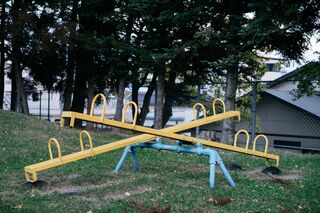Anxiety
3 Ways to Use Self-Doubt to Your Advantage
Learn when to listen to your doubts — and when to ignore them.
Posted June 29, 2021 Reviewed by Ekua Hagan
Key points
- Some self-doubt can help keep a person stable, as long as it's balanced with healthy risk and vulnerability.
- One can detach from anxiety or self-doubt by naming it and being mindful of its presence and impact.
- Being able to safely reveal self-doubt to someone else who will also encourage healthy growth is vital for everyone.
Doubt. We often see it portrayed as a little dark cloud and a question mark over a character's head, inferring that self-doubt keeps your mind in a persistent fog — unsure and thus paralyzed. At its most severe, it can be devastating, as it feeds your self-consciousness or your fear of making a mistake. So, you avoid risk and miss out on the chance of developing your inner courage.
As Maya Angelou stated: "We delight in the beauty of the butterfly, but rarely admit the changes it has gone through to achieve that beauty.” So if the butterfly pummeled itself with self-doubt, it might never emerge from that very safe cocoon.
But can't self-doubt be helpful? What about when it challenges impulsivity or leads you to question the validity of irrational or shame-based thinking? What may come to mind most readily may be a habitual thought that often wins, but shouldn't. So the solo voice of reasonable self-doubt pipes up and says, "Wait, hold on a minute. Maybe what I'm about to do is something that's not going to be helpful." Or even, "Wait a second. This feels weirdly familiar. And not in a good way."
Here's how to know when to "doubt" your doubt, and when to listen to it.
Self-doubt can help regulate choices

First, your doubt can be truly helpful if it's serving to keep yourself organized, not overwhelmed, or objective about what can actually be accomplished.
Margie Warrell, an expert on self-doubt, says: “As you think about the things you’d most love to achieve or change in your life right now, just know that self-doubt is there to protect you from the humiliation of falling flat on your face.” It can help you modulate and even regulate choices. Think of a seesaw — when each end is balanced, it's stable. So at one end is self-doubt or caution. But at the other is healthy risk and vulnerability.
Shame- or anxiety-based doubt needs to be challenged
If the self-doubting message is shaming, fearful, or anxiety-based, then questioning your doubt can be good practice. Depression and anxiety can lie to you. Those voices of, "Staying behind the scenes is the only place to stay safe," or, "Who are you to think you can pull this off?" are the voices that need to be challenged.
It can help to "name" the voice that viciously whispers or screams at you in demeaning tones. I myself have named my destabilizing anxiety "Bob." And I literally note his arrival in my head or in my body, "Oh, Bob has shown up. Well, that's interesting." And I try to then get very externally focused, so I don't fuel Bob's message of self-doubt.
It helps to share self-doubt with others
And third: It's important to be able to share your self-doubt with supportive others. What do healthy parents say to children when they shy away from trying something a little daunting? They don't shame them about their fear; nor do they predict failure. They may show them how to do it; they may encourage them to not get tied up in success. What's important is to grow. To try.
Who do you have in your life that encourages you to grow? Because those people are to be treasured. They'll help remind you of what's more important to you than your self-doubt, so you can face it, and use it to discover all that is your potential.
References


